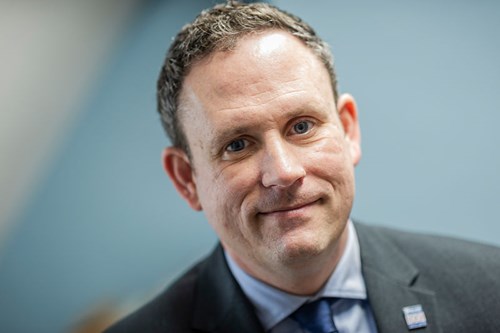Chairman's Blog: Demand, welfare and the pandemic
8 February 2021

“I speak to officers who will suddenly find themselves a PC on shift one day and an Acting Sergeant the next”
Blog from Norfolk Police Federation Chair Andy Symonds on police demand, welfare and the pandemic.
“Last month we saw the publication of the Police Federation of England and Wales’ Demand, Capacity & Welfare Survey and its annual submission to the Police Remuneration Review Body. And this month, the publication of The Officer Uplift and Sergeant Impacts has provided more food for thought.
The results to Norfolk’s 2020 Demand, Capacity and Welfare survey are a mixed picture. Some of the positive areas are the results around officers reporting never/rarely being able to take rest break entitlement when on shift. We’ve seen in previous surveys that this figure was 64% and 60%. The most recent survey reduced this down to 46%.
Similar reductions were seen with officers reporting having two or more rest days cancelled in the previous 12 months from 78% and 67% in 2016 and 2018 respectively. This reduced to 39% in the most recent survey.
Officers reporting having annual leave refused once or more in the previous 12 months was reported at 92% and 76% in 2016 and 2018 respectively. The most recent survey reduced this to 65%. 57% of respondents told us that their workload is currently too high, or much too high in the 2020 survey. However it was standing at 82% and 83% in 2016 and 2018 respectively.
These results are in the positive direction. We have worked hard with the force on these areas and seen lots of successes. But there is still work to do.
37% of respondents said that they viewed their job as very or extremely stressful. This is higher than the proportion reported in the national sample (33%) and lower than the proportion reported by Norfolk officers in 2018 (40%).
The force has recruited an extra 200 officers since 2015 which is extremely welcome and has helped with workloads and stresses. With the Uplift programme we’ll see more officers recruited which is again a positive. We have seen around 6,600 officers recruited nationally which is part of the 20,000 total the Government announced back in 2019. However we must not forget that during March 2010 to March 2019 Home Office figures show that the police service lost over 20,000 police officers. So by the time we recruit these 20,000 officers it will be 2023. This will only put us where we were in 2010, a decade ago, before the Government imposed cuts.
Since this time we have seen the complex nature of investigations rise, lots of areas have fallen to the police to pick up as other agencies have reduced their service due to the cuts. Particularly around mental health with officers dealing with very unwell people. Many of our interactions we have on calls for service more often than not involve mental health. Digital investigations and online child abuse and exploitation are all areas which require significant officer resource.
Other areas of concern come in the form of having a very young and relatively inexperienced workforce. We rely heavily on our first line supervisors to guide and mentor new student officers as well manage their teams. These Sergeants are an important asset, they are the ones who manage the daily risk in terms of deployment of officers on their teams, making charging decision files.
Managing their teams in terms of the human resource side of their role. Importantly they are the ones who look after the welfare of their team, identifying officers that may be showing signs of stress, anxiety or have attended a traumatic incident and are in need of support, guidance or referral to extra support.
So we therefore need to look after them and invest in these Sergeants, equipping them with the skills to do their job. Part of my role is to make these representations to the force in continually improving the transition from being a Constable to a Sergeant. I speak to officers who will suddenly find themselves a PC on shift one day and an Acting Sergeant the next. Part of the solution to this is having an effective PDR and CPD programme in place so officers looking for promotion opportunities are given some experience of the role before they are given the role of Sergeant.
We have worked with the force and supported an introduction of a trial Tutor Constable unit which will help manage the new student officers coming into the force over the next 2 years. This will help alleviate some of the demand Sergeants face.
Covid has also had an impact on officers’ mental health. It's been a hugely demanding year and I know officers are fatigued. So it’s a matter of identifying the signs early in each other and for supervisors and managers to be mindful of this. We have support available for officers both from the force and Federation. But it’s a case of identifying it early and offering this support. Again there are a number of initiatives from working with our Workplace Health and Wellbeing team which will help officers get through difficult, stressful and traumatic incidents.
We have work to do in making sure that we continue to improve on these areas. I will continue to work with and push the force in all of these areas particularly around mental wellbeing. Our Workplace Health and Wellbeing team have been under huge demands during this pandemic and have done some excellent work with officers reporting mental health issues.”


















